Panama is a melting pot of cultures, and expats from all over the world have made their home here. Whether you are looking for a place to retire, work, start a business, or invest, living in Panama has something to offer everyone.
This guide covers everything from why Panama is a great place to live to the cost of living and what to expect when you move here.
In this guide:
- Panama highlights.
- The legalities of moving to Panama: visas and residency options.
- The cost of living: monthly expenses, rentals, and real estate.
- Panama as a retirement destination.
- Buying real estate.
- Healthcare.
- Opening a bank account.
- Where to live in Panama – an overview of the most popular expat locations.
- The pros and cons.
Secure Peace of Mind with Best-Value International Health Coverage
International Citizens Insurance provide free, no-obligation quotes from the leading international health insurance providers with plans tailored to meet your needs. Trusted by thousands of expats worldwide.
Panama's highlights
Panama is an amazing place to live for many reasons.
The weather is incredible, with the average daytime high at the beaches at 32 °C/90°F and in the upper mountain elevations, at 25°C/78°F.
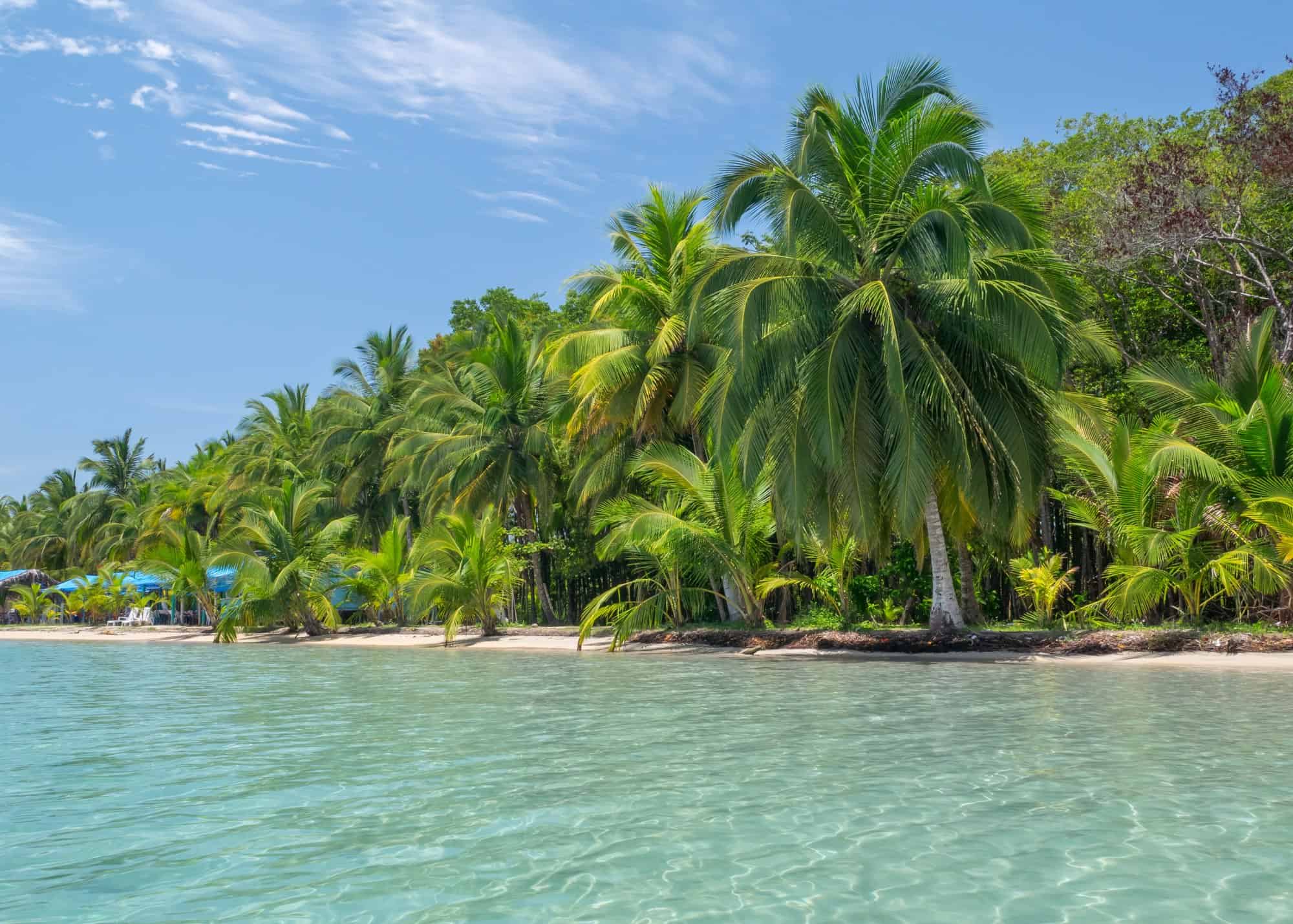
There are beautiful beaches, rainforests, and mountains to explore.
Panama also has a very low cost of living, which makes it a great place to live on a budget.
Living in Panama allows you to lead a healthy lifestyle with fresh fruits and vegetables readily available and plenty of opportunities to get outside and be active every day, with a year-round nice climate. Living in Panama is good for your mind, body, and soul.
One of the best things about living in Panama is the people. The Panamanian people are some of the friendliest and most welcoming people you will ever meet. They are always happy to help, and they love to have fun!
Panama visas and residency options
Panama is very welcoming to foreigners, and there are many ways to live in Panama as a foreigner, whether you want to become a resident or stay as long as you can without becoming a resident.
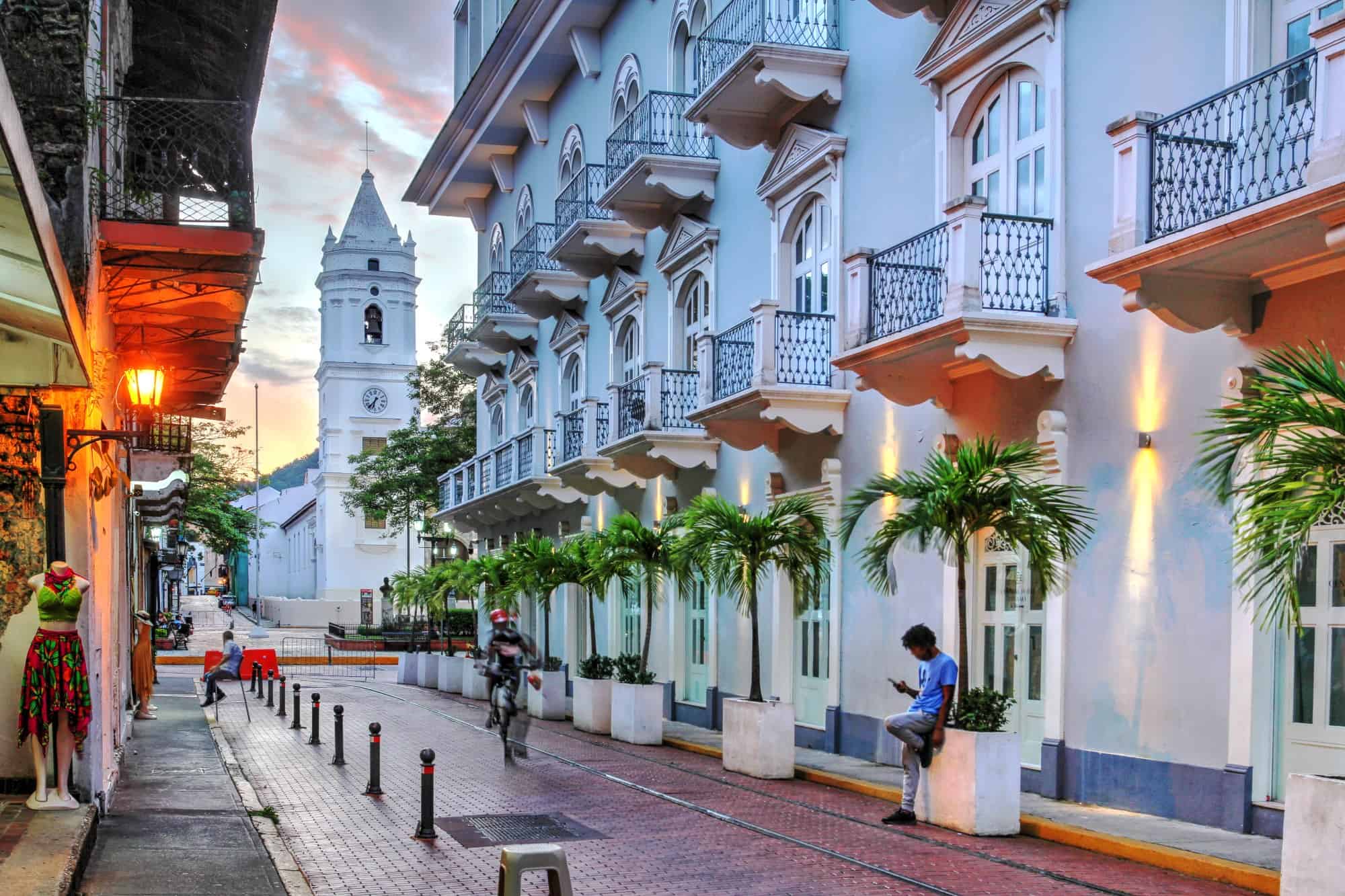
Staying in Panama without becoming a resident
Many foreigners can visit Panama as a tourist, visa-free for 90 - 180 days. Check with the Panama Embassy website if you are unsure of your country's requirements.
A 3-to-6-month stay is enough if you only want to spend a colder part of a year out of your home country and somewhere nice and warm.
Residency visas
There are a few ways to become a legal resident. The most common way is through retirement, employment, investment, or marriage.
If a Panamanian company or the government employs you, you can apply for a work visa which will then allow you to apply for residency.
If you want to invest $200,000 in a bank-certified deposit in Panama or real estate in Panama, you can apply for a Friendly Nations Visa if you are from one of Panama's 50 friendly nations countries. The process from a temporary visa to a permanent visa takes about two years.
Investors' Visas start at $300,000 with real estate or $500,00 with bank deposits, and they can be obtained without even being in Panama. You can obtain a permanent visa in as little as 30 days with this program.
Panama is also offering a Digital Nomad Visa designed for remote workers, allowing a temporary visa for an extended stay of up to 18 months. This visa is not a work permit, and the company you work for or the income you are making must be coming from outside of Panama.
The Panama Retirement Visa, also known as the Pensionado Visa, is designed for retirees who wish to live in Panama. To qualify for this visa, you must have a lifetime pension of at least $1,000 per month ($1,250 for couples). There is no age requirement, making it ideal for early retirees.
For more information on the different kinds of Panama visas available to expats, as well as their requirements and costs, visit our Panama Visas and Residency guide.
The cost of living
The cost of living in Panama is quite affordable. Here's how the country compares to North America and Northern Europe:
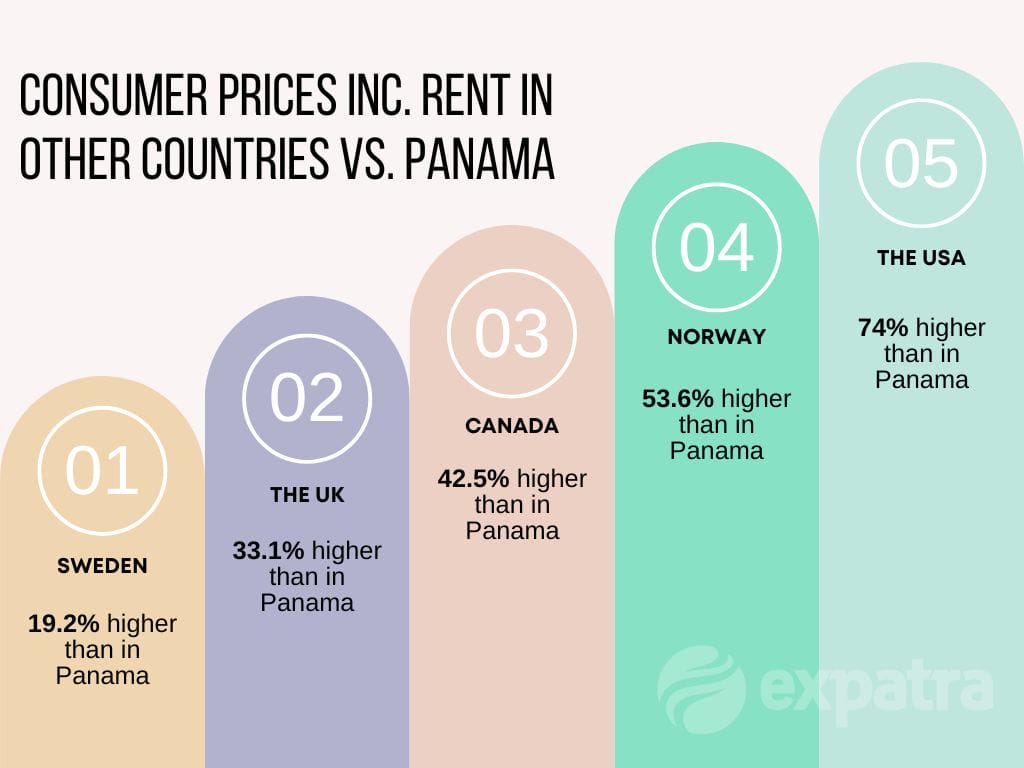
You can live comfortably starting on a budget of around $2000 per month for a couple. This includes rent, food, transportation, utilities, and entertainment. Of course, if you want to live more luxuriously, you can do that too!
The cost of living in Panama will depend on where you want to live: city, beaches, or mountains.
The most expensive place to live would be Panama City. This is a major city, which some compare to a mini Miami. The skyline, with its 70-story towers, offices, and residences, is breathtaking.
If you want to live close to the action and all the amenities a big city has to offer, great restaurants, cultural events, and sporting events, then Panama City is for you.
However, living in Panama City will cost you more than living in other parts of the country, with a couple needing a monthly budget of about $3,000 if renting a basic 2-bedroom condo in the city.
The second most expensive place to live in Panama would be on the beaches. Beachfront property is always in demand and costs more.
But living on the beach doesn’t have to be expensive. You can find decent apartments near the beach starting at around $800 a month, depending on the location and amenities. Actual beach properties with stunning ocean views start at $1,200 a month.
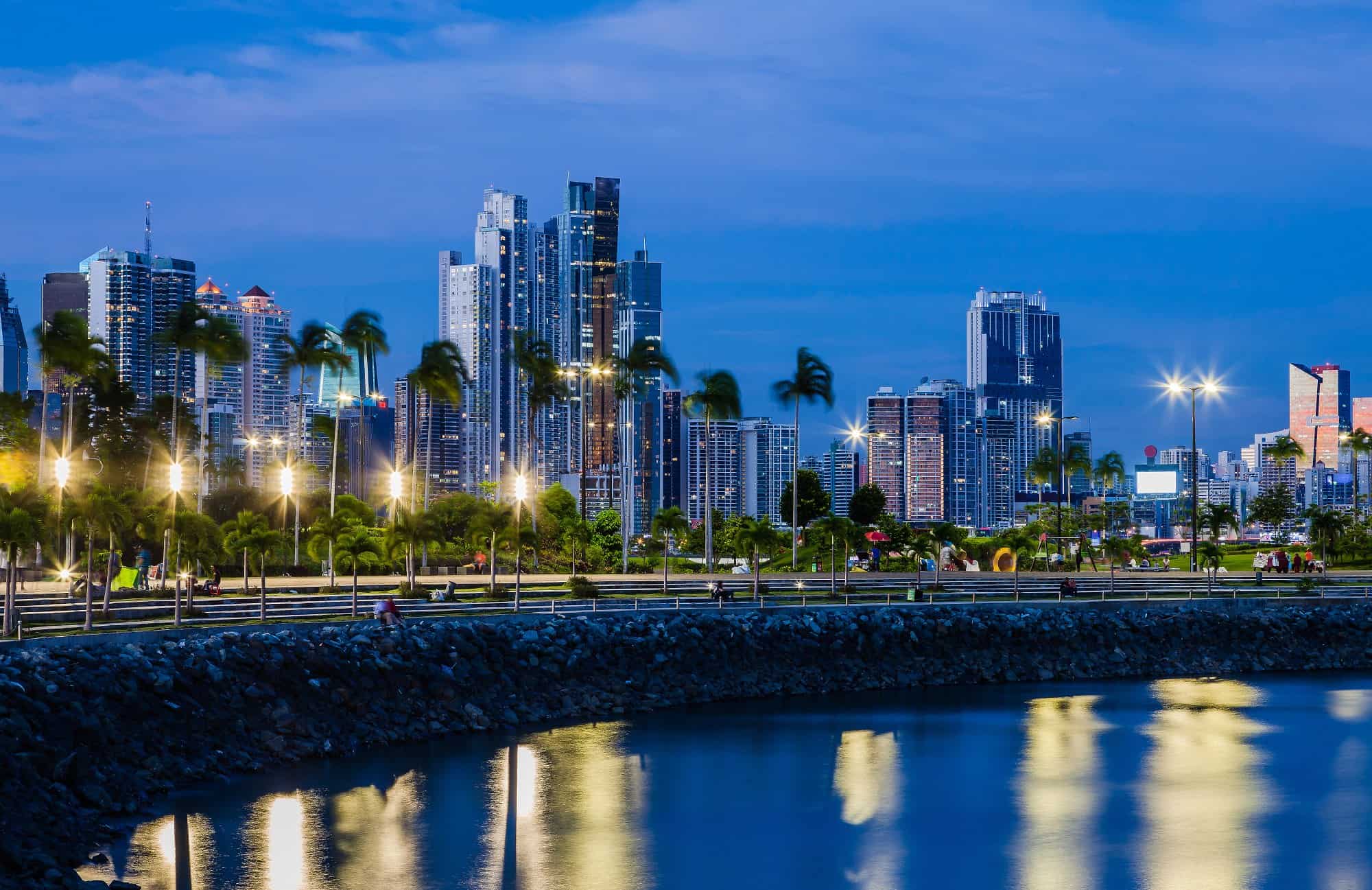
Food is also very affordable, with seafood being caught fresh daily and produce from local farms being sold in open-air markets.
The least expensive place to live in Panama would be in the rural towns.
There are many small Panamanian towns located throughout the country, usually within an hour of the beach or a major city.
You can find a basic house for as little as $500 a month, and food is also very affordable. You can have a great lunch in a typical Panama restaurant for as little as $5.
The biggest difference in your cost of living will be your housing. Panamanian homes can be found for rent throughout the country, outside of the city, for as little as $500 a month, whereas a North American-style home will be closer to $1,000 or more a month.
Real estate is the same, with Panama-style housing starting at $100,000 and North American builds starting closer to $250,000.
Retiring to Panama
One of the main reasons people move to Panama is to retire. And it’s no wonder, with the great weather, affordable living, and friendly people, Panama is one of the top destinations for international retirees.
According to the Expatra Global Retirement Index, Panama is in the top 20 retirement destinations in the world.
The index is based on the Expatra Global Retirement Survey that asks international retirees to rate their retirement destination’s infrastructure, climate, ease of settling down, value for money, friendliness, and other aspects of life in their retirement destination.
Here's how Panama scores:
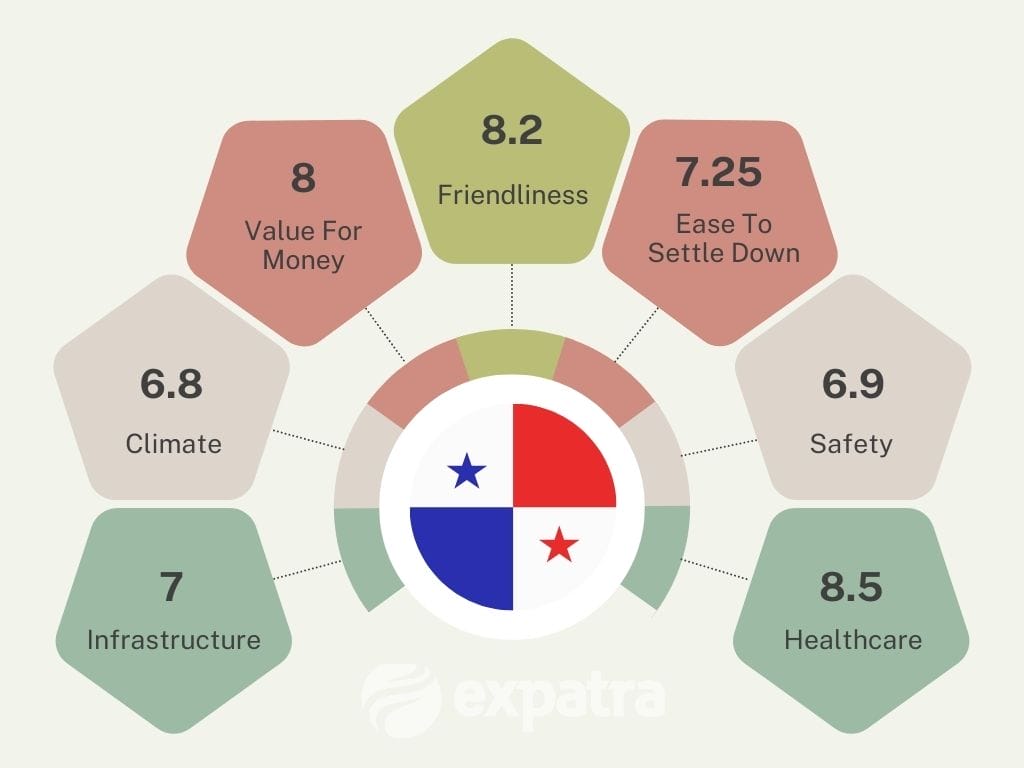
Panama Pensionado Visa
If you are thinking about retiring to Panama, you will be happy to know that there is a Visa program designed specifically for retirees: the Pensionado Visa.
This Visa is offered to those who are receiving a lifetime pension over $1,000 per month ($1,250 for a couple) and is a permanent residency visa for life.
The total cost of getting this Visa is under $3,000 in legal and government fees for a couple, making it the lowest-cost permanent residency program in the world.
This pension can come from a government or a private company, but it must be for your life and does not include savings or investments.
There are other Visas available if you do not have a pension. There is no age requirement for the Pensionado Visa, so it's great for early retirees.
Also wrapped up in the Pensionado Visa is a government-initiated discount program. For those with a Pensionado Visa (any age), in addition to all citizens and residents when women are over 55 and men over 60, there are many discounts offered. Here are some of the discounts:
- 50% off entertainment (movies, concerts, sporting events, etc.)
- 30% off public transit
- 25% off airfares
- 25% off restaurants
- 15% OFF fast food restaurants
- 25% off utility bills
- 15% discounts on medical procedures and prescriptions
- 50% off hotels during the week
Pensionado Visa applicants even get $10,000 duty-free goods to ship here and no duty on an imported car.
For more detailed information, check out our Retiring To Panama guide.
Buying real estate
Foreigners can legally and easily purchase property in Panama in their own name, regardless of their residency status or nationality.
Things to keep in mind when purchasing property:
- In the majority of cases, foreigners can own land and property outright, similar to "Fee Simple" titles in the US.
- For restricted areas like borderlands or islands, foreigners must obtain an Investment Permit from the Ministry of Commerce and Industries (MICI). This permit ensures that foreign investment does not pose a threat to national security or the economy.
- Foreigners cannot own properties within 10 kilometers of Panama's borders or coastlines.
- For beachfront and other coastal properties, the Panamanian government often retains ownership of the land, and as a foreigner, you can apply for a concession to use the land.
Here is what it will cost you on average to buy properties in various locations throughout the country:
| Location | Condos | Panamanian-style houses | North-American-style houses |
|---|---|---|---|
| Panama City | $250,000 | $300,000 | $400,000 |
| Boquete | $180,000 | $200,000 | $300,000 |
| Coronado | $200,000 | $250,000 | $350,000 |
| Bocas del Toro | $150,000 | $180,000 | $250,000 |
| Pedasi | $190,000 | $220,000 | $320,000 |
Safety
Yes! Panama is a very safe country to live in. The crime rate is low, especially compared to its neighbors in Central America.
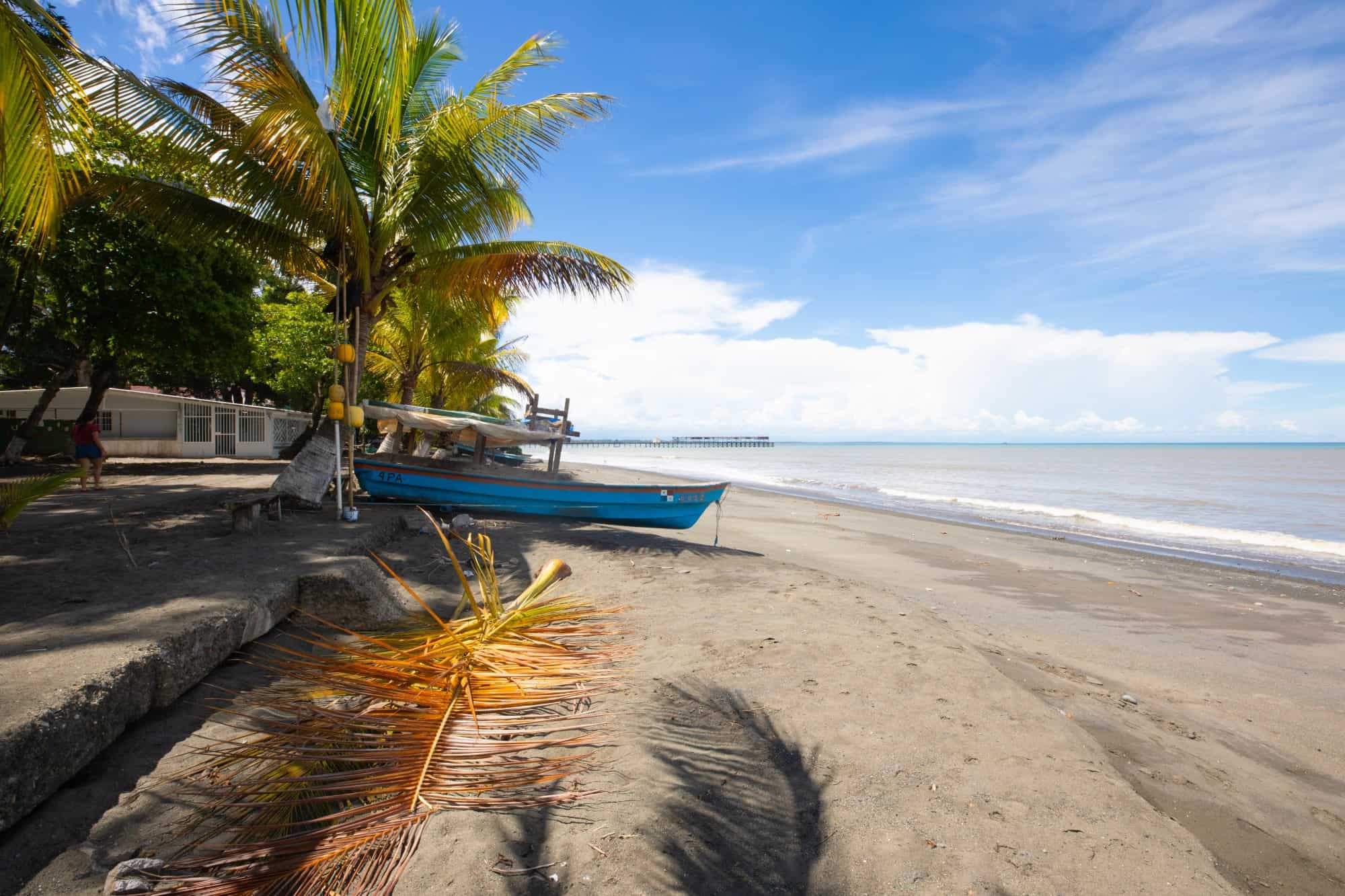
Of course, as with any country, some areas are safer than others, and you should always use common sense.
There is some gang and drug violence in the big cities, like most big cities, but if you look at reputable crime stat sources, you will see that Panama has a lower crime index rate than the United States and a similar one to Canada or the UK.
I have personally lived in Panama, in the cities and up in the mountains, for the last ten years, and I have always felt safer than back in my home of Vancouver, Canada.
It is still wise to be vigilant. For example, do not leave your valuables in your car or walk around at night alone in a bad neighborhood. Driving your Lexus with fancy gold jewelry is just going to attract attention and get you in trouble.
My local friends always joke about how paranoid Gringos can be, but I think it is just because they haven’t been living outside of their countries for very long.
It can be daunting at first to live in a new country with unfamiliar surroundings and language barriers. In time, as you get used to things in your new home country, you will begin to feel safer in your surroundings, especially after you get to know your friendly Panamanian neighbors.
Is Panama safer than Costa Rica and Mexico?
In comparison, Panama is much safer than Mexico or Costa Rica.
From the experience of living here and speaking with people who have lived in both countries, the petty crime rate in Costa Rica has grown dramatically in the last ten years, and the drug cartel crimes in Mexico keep growing.
Most expats in Mexico live in gated-controlled communities, while in Panama, most live in Panama ungated neighborhoods.
So overall, yes, Panama is safe to live in! Just use your head and don’t do anything stupid and you will be fine.
Where to live in Panama
This is a big question, and I will say that it depends on three things: lifestyle, budget, and desired climate. You also have to decide if you are looking for an expat community where there are other foreigners living or if you are looking for a more Panamanian feel.
Lifestyle
As far as lifestyle, are you looking for city life, beach life, or a more quiet mountain lifestyle? Living in Panama can offer all of these things.
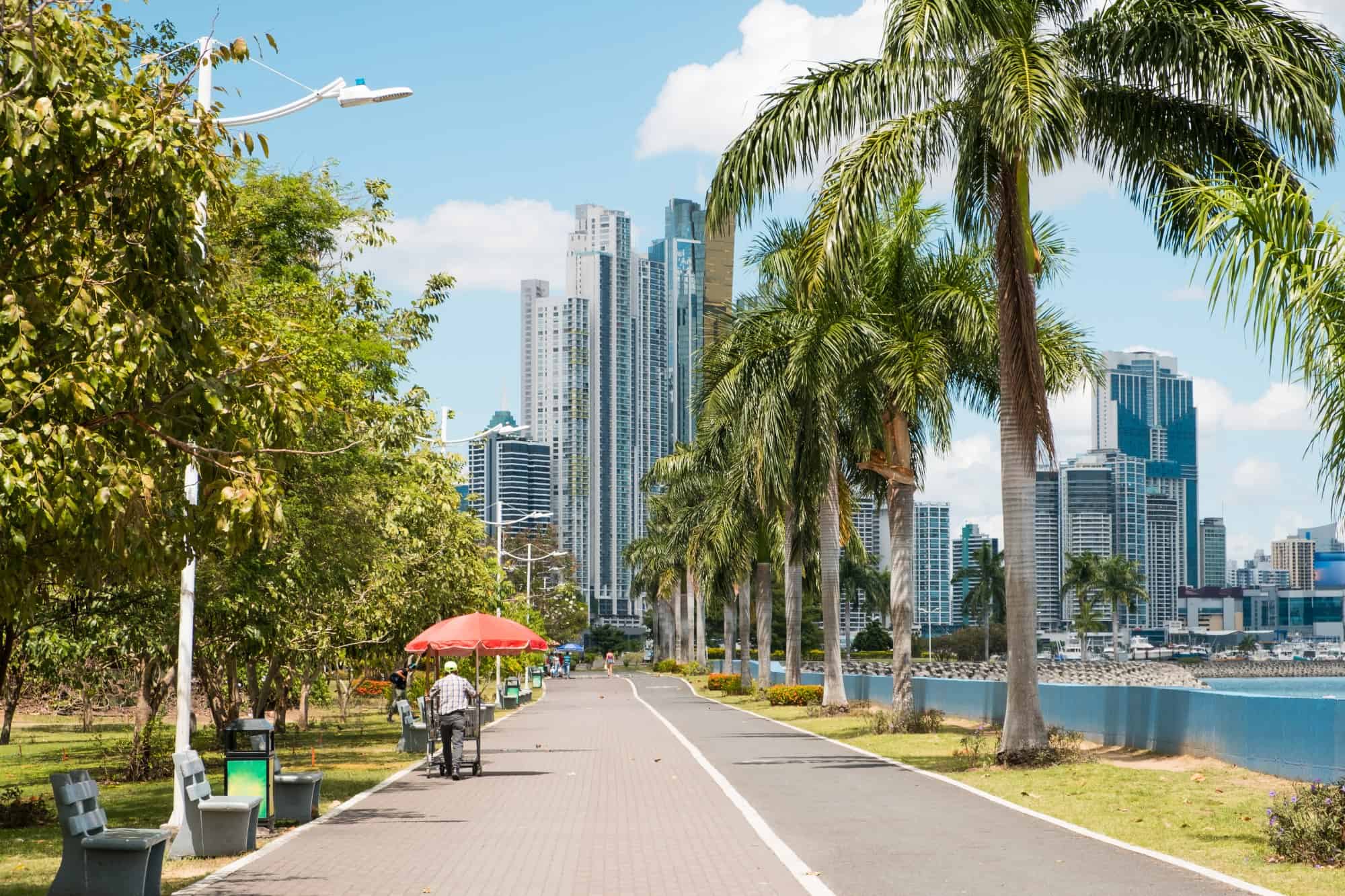
For city life, consider living in Panama City. This modern metropolis can offer you whatever large North American and European cities can offer.
The other smaller cities in Panama, like David and Santiago, have more of a smaller Latin feel and do not have the big city life that Panama City offers.
There are many beaches in Panama to choose from.
About an hour from Panama City, you have the Coronado area, which stretches almost 50 kilometers, with many beach communities to choose from.
Then, you have the Azuero Peninsula, with places like Las Tablas, Pedasi, and Playa Venao. Heading west are the Chiriqui beaches from Las Lajas to Boca Chica to Puerto Armuelles.
Then, in the mountain areas, starting near Panama City, you have Valle de Anton. In Central Panama, there is Santa Fe, and then in Chiriqui province, you have the highest mountains and the coolest climates in Boquete and Volcan.
Climate
The climate in Panama varies a lot.
Panama City and the close beaches tend to be very hot, wet, and humid in the rainy season. In the Azuero Peninsula, it is also hot but a bit dryer.
In the mountains, especially Boquete and Volcan, it is much cooler and even wetter. This area can be described as eternal spring.
The dry season in Panama is from January to March, with not much rain at all. The locals call this their Summer season; even Panama schools have summer holidays during this time.
The rainy season starts in April, with one or two afternoon showers weekly, and progresses to October and November with afternoon rains most days.
My favorite time of year is April to October, with just enough afternoon rains to keep everything green and lush and sunshine every day until mid-afternoon.
You can find more information on where to live in Panama in our guide, Best Places To Live In Panama For Expats.
Healthcare in Panama
The health care system in Panama is 2-tiered, public and private. Both are paid systems, but the public is designed to be affordable to all.
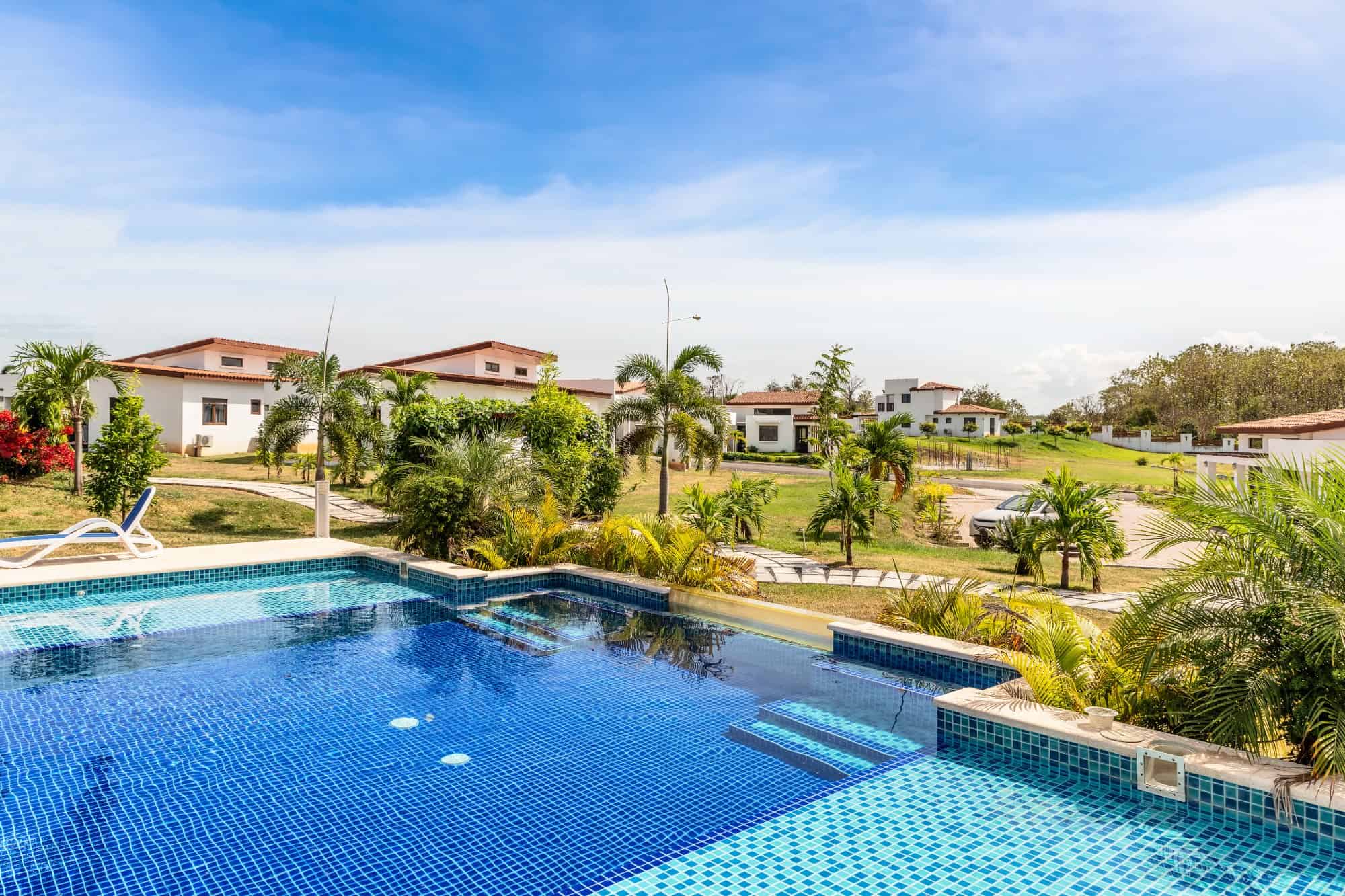
In the public system, a doctor's visit costs 50 cents, and a specialist $3. X-rays and tests can be as little as a few dollars. Two nights in the hospital can cost as little as $75. So it is affordable but has a lot of problems. Shortage of equipment and medicines are a couple of those problems.
If you are employed in Panama, pay into the Social Security system, or draw on your Social Security pension, you can use the public system for free, as you pay, or have paid, monthly into this system.
For the private hospital system, you can purchase insurance - either local hospital insurance or international insurance.
International health insurance can be quite expensive. To make sure you get the best value for money, compare international health insurance options from various providers to find the best deal.
The system is very good, with top hospitals like Hospital Punta Pacifica, a Johns Hopkins affiliate hospital in Panama City.
There are many good private hospitals across the country, and if you have insurance, you can be assured of excellent healthcare in Panama.
Bank accounts
Opening a bank account, if you live in Panama, is fairly straightforward.
Panama does not open bank accounts for tourists; you must be a resident or at least in the process of residency.
Below is the list of requirements to open a bank account at most banks in Panama. The requirements differ slightly from bank to bank, so contact the bank first to ensure.
- Passport and Residency Card (Letter from your immigration lawyer if you are in the process of residency)
- 2nd piece of photo ID (Drivers License)
- A bank reference letter from your current bank from home
- Residential rental lease agreement or home purchase contract in Panama.
- Proof of income (this can be your retirement benefits letter or the last two years of your tax returns)
- A cash deposit of between $500 - $1,500, depending on the bank
- US citizens will have to sign a W9 form.
After visiting the bank with all your paperwork, your account will be opened in a few days to two weeks, depending on the bank. You can find out more information in our Banking In Panama guide.
The pros and cons of living in Panama
I think the pros of living in Panama far outweigh the cons, but I will give you both, and weighing both sides is important if you are looking for Panama as a place to live.
The pros of living in Panama
1. Retirement benefits
The extreme ease in attaining a permanent visa for retirees from around the world and the discount programs offered to those retirees are certainly big pros for retirees moving to Panama
2. Lower cost of living
In general, the cost of living in Panama will be lower than that of countries like the United States, Canada, the United Kingdom, and Europe.
3. Good, affordable healthcare
The healthcare in Panama is good and affordable.
There are both public and private hospitals and clinics, with the private ones being of better quality. Local and international health insurance can be purchased to make use of the private health care system.
Most doctors in Panama speak English, and many are trained overseas.
4. Beautiful country
Panama is a very beautiful country with beaches, mountains, rainforests, and city life. It really has something for everyone.
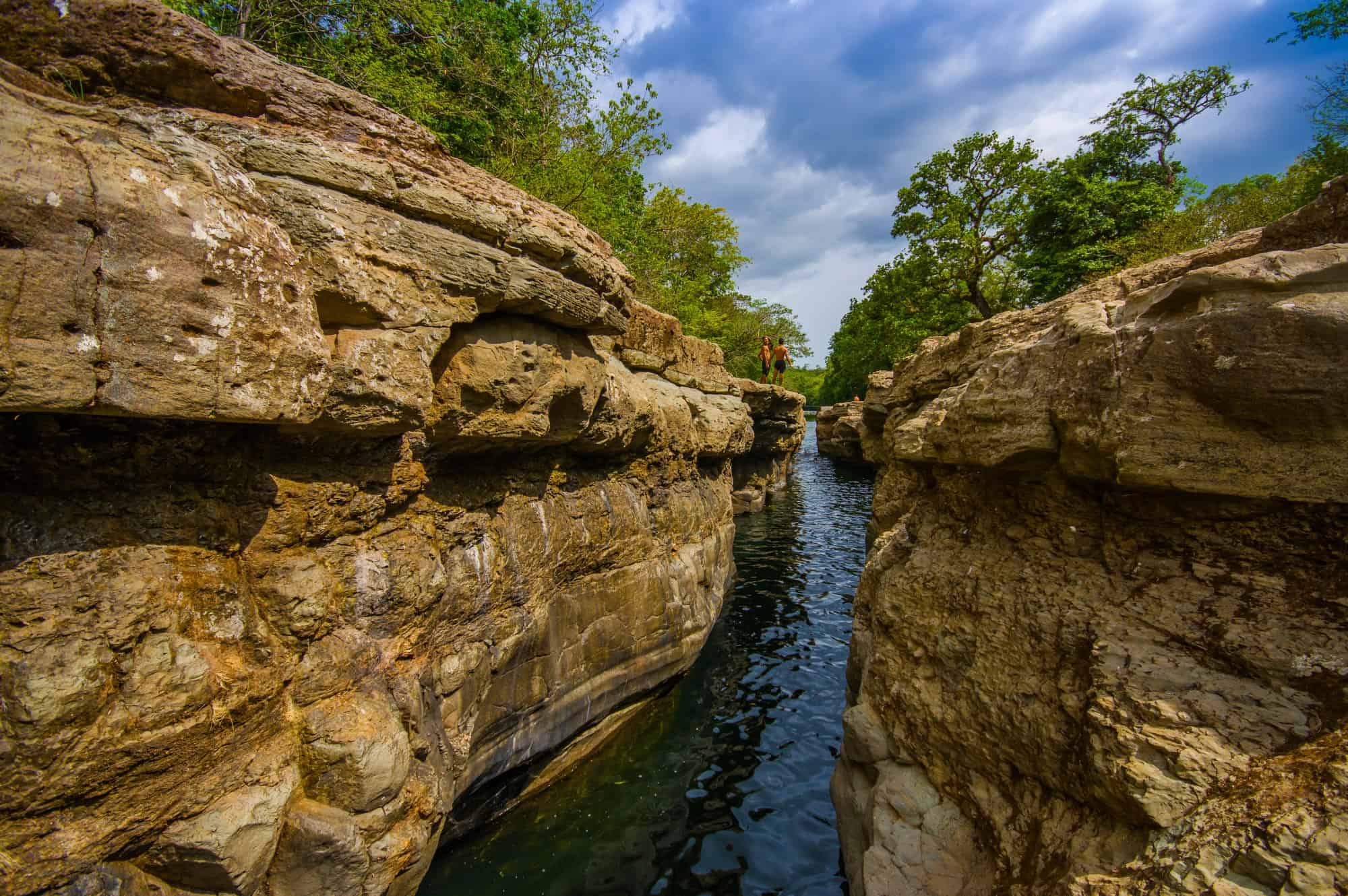
5. The political and economic stability
Panama has had a stable government for many years now and is one of the more stable countries in Central America. Panama boasted one of the highest GDPs in the Americas between the years 2004 and 2018, with an average GDP growth of 6%.
6. The good bits about the weather in Panama
Here we list the pros of the weather:
- Beach-like hot temperatures, which many people enjoy and want if you live by the beach.
- Option to live in the mountains and enjoy a much cooler climate.
- A rainy season that keeps the entire country and its tropical rainforests green.
The cons of living in Panama
1. Poorer infrastructure compared to North America and Europe
You will notice this more in Panama with sidewalks and accessibility.
The highway system is good, with good public transit, but the cities and towns are not very walkable, with poor or non-existent sidewalks.
The lack of green space, bike paths, and accessibility for the handicapped is definitely noticeable.
There will be frequent power and water outages no matter where you live in the country, with more of that in rural Panama, and less living in the City.
2. The slow pace of life
Some may say that the slow pace of life is good. Yes, it's good if you are retiring, but the Panamanian people take this directly to their work, businesses, and the public sector.

It can take an endless amount of time to get anything done. Whether you are filing government paperwork, getting your lawn cut, or ordering drive-thru at Mcdonald's, expect to wait, and wait, and then wait some more.
3. The bad bits about the weather in Panama
Yes, I know the weather was in the Pros section also, but for some, the weather in Panama could be unfavorable. And here is why:
- All the beach areas and Panama City have daily highs in the 90s every day of the year, and that is just too hot for some.
- For others, it is too rainy in Panama. Panama is located in the rainforest, so it does rain a lot here, from April to November.
4. Product availability
This is something a lot of people do not think about - the availability of their favorite name-brand products. Panama is a small country of four million people, and many of the name-brand products North Americans are used to are just not sold in Panama.
Final thoughts on living in Panama
Living in Panama can be a great experience, but it is not for everyone.
If you are looking for a place to live just like you have at home, then Panama is probably not for you. One thing I can guarantee you is that the culture, the people, the language, the landscape, and the traditions are not like you have at home.
If you are not ready to adapt, change, and accept this, you will never be happy living in Panama.
Before making the move, make sure you are aware of what to expect and that you are ready to embrace the culture and lifestyle here. If you can do that, living in Panama will be a rewarding experience for you.
You might find useful:
- The Best Places To Live In Panama As An Expat
- Panama Visas & Residency Options
- Banking In Panama For Expats
Helpful external links:
- Advice for British nationals living in Panama - www.gov.uk.
- US embassy in Panama - pa.usembassy.gov
- Panama immigration and visas - embassyofpanama.org
- Travel advice for Canadian citizens - travel.gc.ca
Further places to explore in Latin America:
- Living In Chile
- Living In Mexico
- Living In Argentina
- Living In Costa Rica
- Living In Colombia
- Living In Paraguay
- Living In Brazil
Secure Peace of Mind with Best-Value International Health Coverage
International Citizens Insurance provide free, no-obligation quotes from the leading international health insurance providers with plans tailored to meet your needs. Trusted by thousands of expats worldwide.




